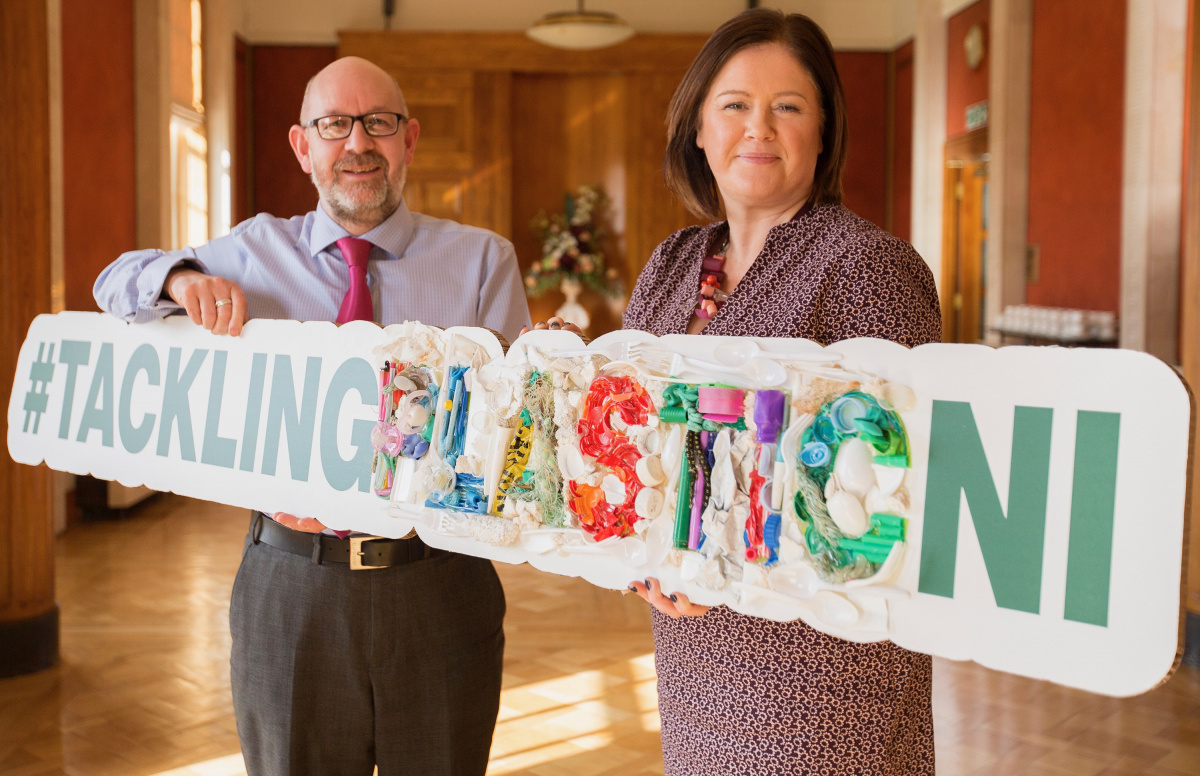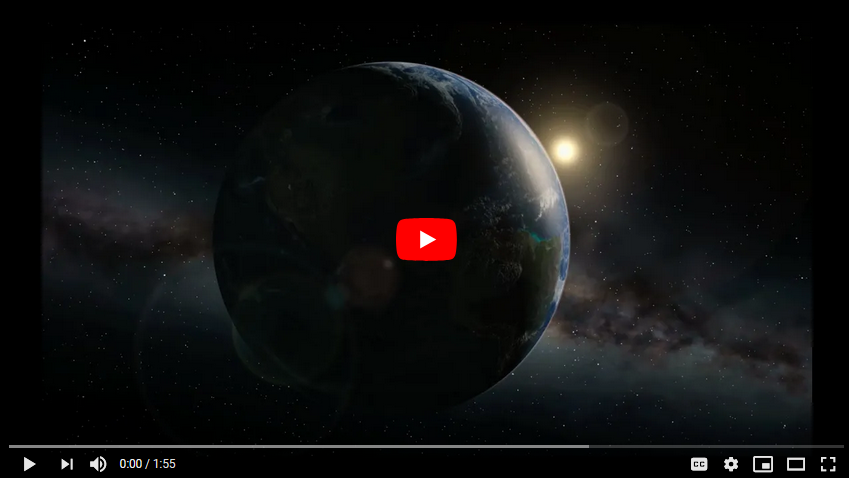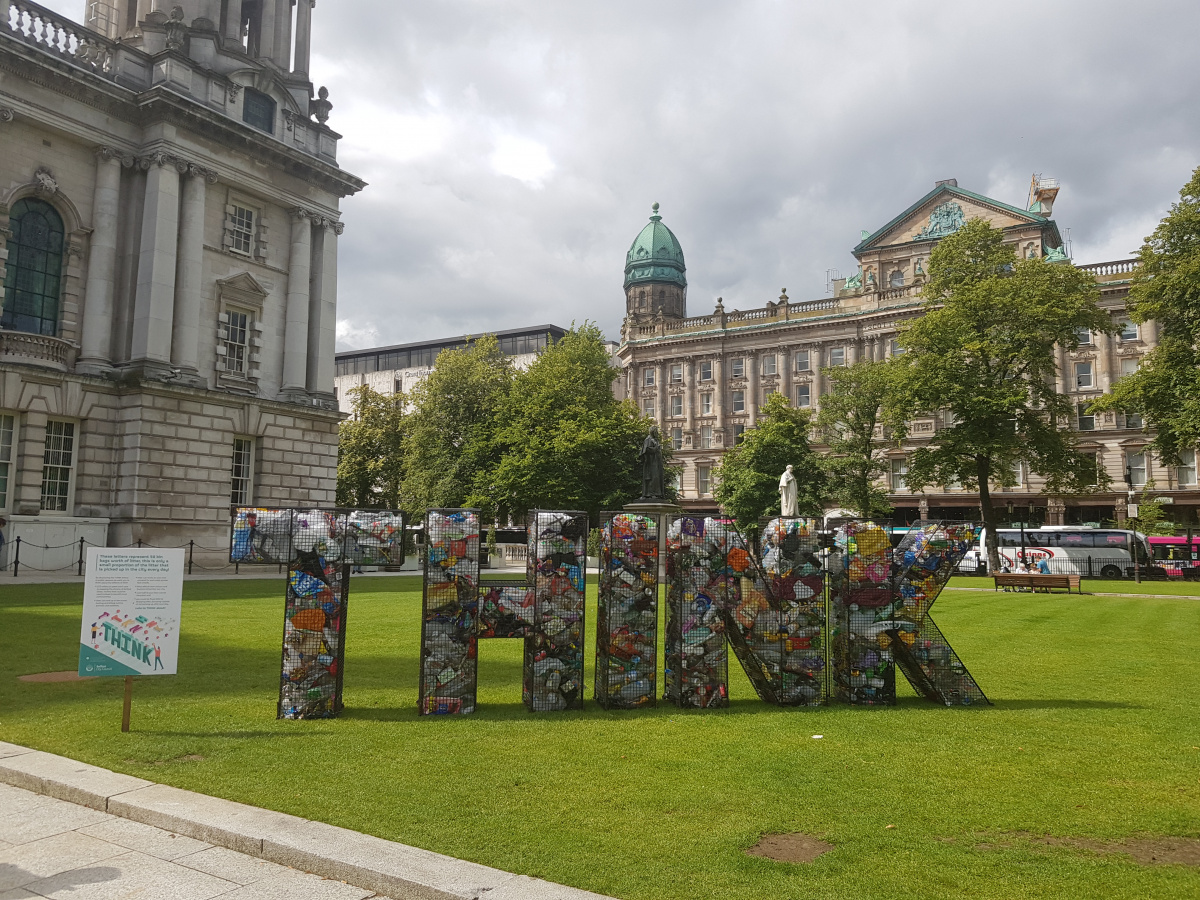What's the problem?
The issue of plastic waste and the impact it has on our environment is regularly highlighted in the media and is a part of everyday conversations.
Plastic isn’t all bad though. It’s actually a great material that helps us navigate our busy lives. It’s our misuse of plastic that’s the problem. We pointlessly use plastics every day. Most of it is single use and is thrown away within just a few minutes of use.
Many plastics end up in landfills or in the environment where they can take up to a thousand years to break down. Our misuse and mismanagement of plastic are crippling our marine environment, killing wildlife and damaging our health.
Tackling Plastic NI
Funded by the Department of Agriculture, Environment and Rural Affairs (DAERA), Sustainable Northern Ireland jointly delivered a project in partnership with Keep NI Beautiful that aimed to tackle consumer single-use plastic, by encouraging government departments and councils to make simple changes to reduce their direct consumption of single use plastic.

As part of this initiative, we established a Tackling Plastic Working Group whereby local councils worked collaboratively with DAERA to change policies and practices in order to reduce single use plastic. Sustainable Northern Ireland supported the group by facilitating meetings and developing policy guidance and sharing best practice to accelerate the removal of SUP from the public sector estate.
We also assisted DAERA in developing a Plastic Reduction Action Plan for the Northern Ireland Civil Service, which brought in a mandatory ban on single use plastic on the government estate.
Councils Tackling Plastic
If you work for a council and want some inspiration to tackle plastic on your estate, check out what other councils have been doing below.
How to tackle plastic pollution
Since documentaries like BBC's Blue Planet 2 and Netflix's Seaspiracy exposed the issue, many people and organisations are asking what they can do to reduce their plastic waste and contribute to the global effort to protect marine habitats.
Here are some tips and ideas:
1. Refuse
This is the easiest way to reduce plastic waste is to simply turn down single use plastics when offered, and reduce or cut out completely your consumption of seafood.
- Seafood - lost and abandoned fishing gear which is deadly to marine life makes up the majority of large plastic pollution in the oceans and contributes to the destruction of marine ecosystems. Opt for a veggie version of your fish fingers next time you're in the frozen food aisle!
- Straws - Stop using them or ask for a reusable or biodegradable alternative
- Plastic bags - in Northern Ireland we still use over 93 million single use plastic bags a year. Simply use a bag for life, keeping spares in convenient places so you don't forget, or take larger bags with you so you can save those pennies and refuse the plastic bags.
- Coffee cups - using your own reusable coffee cup can help you reduce the 7 million coffee cups of waste that are produced each day in the UK.
- Plastic cups - invest in a reusable water bottle or a work mug instead.
- Single use cutlery and stirrers - turn them down in favour of reusable or more environmentally friendly alternatives such as washable cutlery.
The Story of a Spoon
2. Reduce
After first refusing single use plastics, the next step is to think about the plastics you use every day and the ways in which to reduce the amount you use. Here are some tips:
- Biodegradable Cotton Buds - Plastic cotton buds are one of the top ten forms of beach litter and pollute the ocean as they are commonly incorrectly flushed down the toilet. Biodegradable alternatives help you further reduce your plastic waste and to protect marine wildlife.
- Plastic Microfibres - Polyester, acrylic and nylon clothing shed plastic microfibres during each wash which then pollute the ocean. Each year, half a million tonnes of plastic microfibers from these clothes reach the ocean! Buying clothes made from natural materials such as wool and linen, that do not pollute and will eventually biodegrade, can help to reduce your plastic impact.
- Bar Soap and Shampoo - Drinking water is not the only source of plastic bottles, the bathroom is full of them. Although we are increasingly better at recycling our waste in the kitchen and outside, we recycle only 50% of our bathroom packaging. Using bar alternatives reduces your plastic waste and can often save you money as the bars often last longer than the bottled alternative.
- Plastic food wrapping - Try and select the products with the least packaging such as fresh bread which comes in paper bags instead of plastic. If you can, go to a local farmers market (remembering to take your own bag) where it is easiest to purchase plastic-free food. You can also start looking for the 'Plastic Free' logo in selected supermarkets.
3. Reuse
There are many innovative ways in which you can reuse any plastics you simply can't avoid. We have put together some highlights below:
- Save old toothbrushes and use them to scrub and wash your bathroom
- Empty toothpaste tubes can be re-purposed as a frosting tube for icing cakes, by cutting off the end
- Use empty plastic milk cartons and margarine containers as storage around the house, plant pots/ saucers, bird feeders or even a watering can!
- Choose more durable goods over disposable ones, such as razors
- Reuse the plastic bag packaging you get from bread or fruit and vegetables as sandwich bags or to hold your food waste
4. Recycle
Recycling should be part of our everyday lives. Most of us have household recycling collections provided by local councils or make recycling part of our weekly shop at the local supermarket recycling points. Here are a few handy tips to think about when recycling:
- Buy recycled - You can help the environment by buying products that already contain recycled materials. Look for logos that say 'Made from recycled materials'.
- Know what you can and can't recycle - Make sure you look at the packaging and keep an eye out for recycling logos. Each area will have their own recycling guidelines, so try to follow them as best you can. Confused by the many different recycling logos on all the packaging? See this website for a breakdown of all the different logos and what they all mean.
- Contamination - Rinse out your cans, bottles and containers before putting them in the recycling to remove this residue. It doesn't take long and it will help to ensure you recycle as efficiently as possible, reduce your carbon impact and save the council money by reducing the need for unnecessary sorting. Make sure it dries before putting it in the recycling as water contaminates any paper/cardboard in there.
For more information:
There are many great websites and articles on plastics and recycling, see below for some of our favourites:
- How to Use Less Plastic
- Tips on how and what to recycle - Recycle Now
- Some FAQ's on Plastics
- British Plastics Federation
- WRAP - The UK Plastic Pact and Circular Economy



